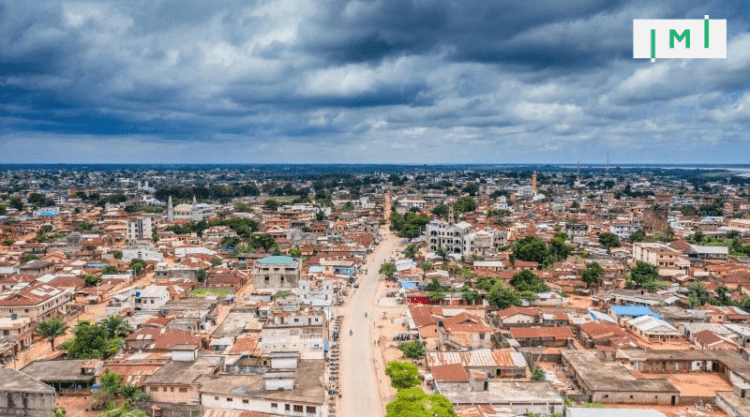The Beninese government, led by President Patrice Talon, has submitted a bill to Parliament to grant Beninese citizenship to individuals of African descent.
According to the government, this bill seeks to strengthen cultural and historical ties with the descendants of Africans deported during the slave trade, addressing the “deep wounds on African societies, in general, and on the descendants of those deported and enslaved, in particular.”
The KOACI, RFI, and the General Secretariat of the Government of Benin state that the proposed law offers Beninese citizenship by recognition to individuals who can prove their sub-Saharan African ancestry and whose ancestors were victims of forced removal from the continent during the transatlantic slave trade.
The bill postulates that an Afro-descendant is “any person who, according to their genealogy, has sub-Saharan African ancestry deported outside the African continent as part of the slave trade.”
To be eligible, applicants must provide evidence of their African descent through civil status documents, authenticated testimonies, or DNA tests conducted by accredited institutions in Benin.
The bill states that “proof of Afro-descendants is provided by the applicant by means of any civil status or official documentation, all testimonies established by authentic deed, a DNA test carried out by an approved structure in Benin or by any other technical or scientific means.”
However, it is essential to note that this recognition of nationality does not grant political rights, such as the right to vote or access to civil service positions.
Successful applicants will receive a three-year Benin passport, but to obtain a naturalization certificate, they must “stay in the country a few days” before their passport expires.
The statement from the General Secretariat of the Government explains that this measure aims to “allow African descendants to reconnect with their roots and maintain a living link with the lands of their ancestors.” It recognizes that “most Afro-descendants wish to find a link with their original kingdoms or, failing that, with the Republics which replaced them.” The government hopes this law will encourage African descendants to invest in the country and participate in its socio-economic development.
The Beninese Parliament is reviewing the bill and preparing to vote on it. If adopted, this legislation would place Benin among a select few African countries that allow citizenship by descent beyond the first generation.
If the bill passes, Benin will join Liberia, Sierra Leone, Sudan, South Sudan, Eritrea, Rwanda, and Zambia as the only African nations that grant citizenship by descent to third-generation dependents and beyond.
IMI’s Citizenship Catalog shows which countries, in Africa and elsewhere, grant citizenship by descent to varying degrees. IMI Pro Members can access the catalog here.
A message from our partners
Article 98 of the Beninese Constitution provides that “citizenship and civil rights are the domain of the law.” Although Beninese nationality by recognition confers on its holder all the rights and obligations attached to it, it excepts “political rights and access to the Beninese Civil Service,” in accordance with article 36 of Law No. 2022-32 of December 20, 2022, establishing the nationality code in the Republic of Benin.
This initiative follows the government’s recent decision to waive visa requirements for citizens of 31 African countries for stays of less than 90 days, further highlighting its commitment to African unity and solidarity.
The government believes that “this bill submitted to the National Representation once again reinforces the pan-Africanist policy advocated by the Government since 2016 through the abolition of visas for all African nationals and reflects a strong desire for African integration.”
Purely Political or Genuinely Beneficial?
Benin’s government has made it clear that it has based this bill on culturally rooted foundations and a desire for greater pan-African unity, even if it does hope that interested applicants invest in the country and provide economic growth.
However, for those who qualify, the question arises: Will they do so for sentimental value? Or is there a tangible benefit to holding a Benin passport?
Eligible persons will initially receive a three-year Benin passport, which provides visa-free access to 63 destinations worldwide. It is worth noting that the vast majority of these destinations are in Africa, with the rest being a handful in Latin America and a few in Asia.
While Benin’s passport has limited global mobility, the country is part of the Economic Community of West African States (ECOWAS) Settlement Bloc.
ECOWAS is an initiative to introduce a common currency called the “eco” for its member states. The aim is to promote economic integration, facilitate cross-border transactions, streamline trade, and enhance monetary policy coordination among member countries.
The bloc comprises 15 member countries: Benin, Burkina Faso, Cabo Verde, Côte d’Ivoire, The Gambia, Ghana, Guinea, Guinea-Bissau, Liberia, Mali, Niger, Nigeria, Senegal, Sierra Leone, and Togo.
ECOWAS citizens have the right to enter and reside (on the grounds of pursuing gainful activity) in any member state. Hence, Benin citizenship opens the door to residency and free movement in 14 other African countries.
The Benin government still needs to clarify whether a passport alone would suffice for residing in an ECOWAS member state or if a person needs to be a full citizen. This is one of the questions it will have to answer if it does pass the bill.
Explore IMI’s Tools and Resources
Ahmad Abbas is Director of Content Services at Investment Migration Insider and an 8-year veteran of the investment migration industry.
Source link : https://www.imidaily.com/africa/benin-proposes-law-to-grant-citizenship-to-african-descendants/
Author :
Publish date : 2024-05-12 07:00:00
Copyright for syndicated content belongs to the linked Source.
